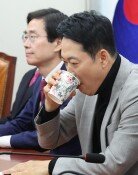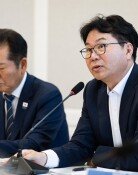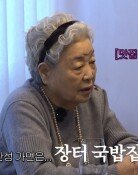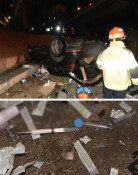Council of Veteran Politicians
The ruling Grand National Party yesterday formed a council of six veteran politicians who have been elected three or four times to resolve the Sejong City dispute. The council consists of two pro-President Lee Myung-bak lawmakers, two who support former party chief Park Geun-hye, and two who are neutral. The council is hoped to narrow the gap between the revised plan for Sejong City and the original blueprint.
If lawmakers belonging either of the two factions only struggle to uphold their cause or prioritize their stance, the council will be useless and waste time. The ruling party will also aggravate the peoples disappointment and political nihilism.
In Koreas political history, politicians have dramatically reached an agreement before thorough under-the-table negotiations with veteran legislators. Recently, however, only the voices of hardliners have been heard, with the status and roles of veteran politicians being weakened. Experienced lawmakers who can narrow differences with their experience and broad-mindedness have disappeared, while spokesmen and secretaries working for faction bosses have gotten louder. The inability of political veterans to play the role of mediator has partially caused Korean lawmakers to prefer extremism and confrontation over conversation and compromise.
Under the leadership of President George W. Bush, the Republican Party dominated the Senate and the House of Representatives in 2005. When Republican leaders attempted to reduce the quorum to break a filibuster from three-fifths of the Senate to half, the Democratic Party resisted. As the two parties struggled against each other, seven Republicans including John McCain and Olympia Snowe announced that they did not support their partys attempt to reduce the quorum. Seven Democrats including Ben Nelson and Joe Lieberman also promised to snub a filibuster except for an emergency. The 14 Republicans and Democrats, most of whom were veterans of the U.S. political scene, are considered politicians upholding the tradition of U.S. democracy, which was at the risk. The council of the ruling party should also play such a role.
Veteran politicians should feel a sense of urgency at a time when the dispute over Sejong City has been a major obstacle in administration for more than six months. If they continue acting as agents of each political faction, they do not deserve to be called veteran politicians. They should persuade their supporters after considering measures good for Koreas future and the general public. They can compromise if they are determined to model themselves after the Roman Catholic Church. Cardinals participating in a conclave to elect a new pope stay in the conference room until an agreement is reached. The ruling partys council of veteran politicians should do the same.







